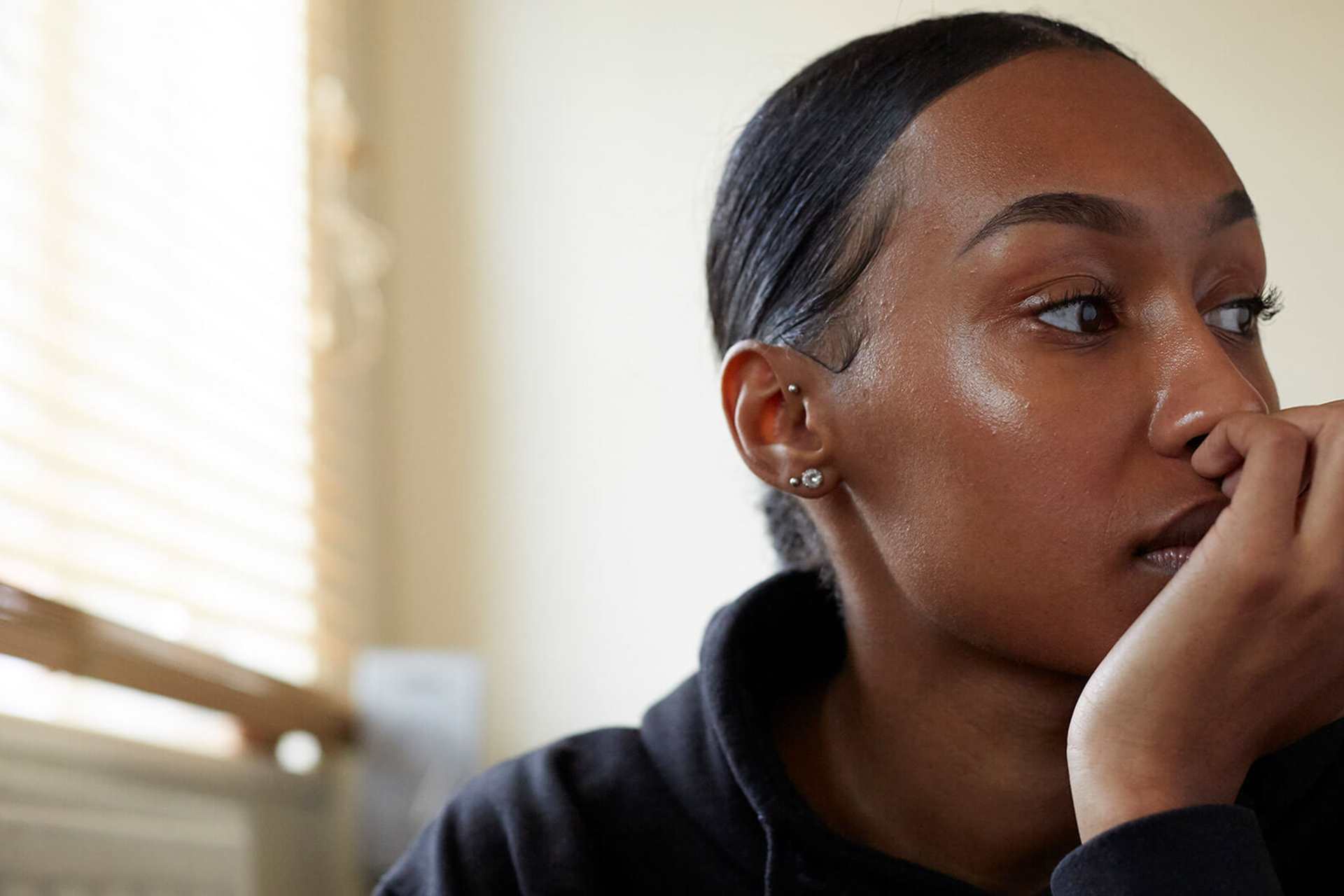Topics mentioned: schizophrenia, medication
About: Jess, 23, explains what she wishes more people knew about symptoms of schizophrenia, medication, and how she is learning to live alongside the condition.
If my story helps even one other person, then to me it is a success.
To some, schizophrenia can sound like a scary word – a life-ending diagnosis. People avoid you, are scared of you, or abandon you when you are unwell.
I started experiencing schizophrenic symptoms when I was 13 and was diagnosed with paranoid schizophrenia when I was 19. Throughout my teenage and young adult years I have been struggling with these debilitating symptoms and learning how to live with them.
Schizophrenia is a life-long mental disorder characterised by delusions, hallucinations, and disorganised thoughts, speech and behaviour.
Schizophrenia affected every aspect of my life. I was an academic high achiever, an avid reader and sociable; schizophrenia robbed me of this. I became isolated and introverted, struggled at school, had no control over my symptoms and was extremely delusional and suicidal. I was even under 24/7 observations to keep me safe. My hallucinations and delusions consumed and controlled me, and I was truly lost.
There are many things that I wish more people knew about schizophrenia. It is a very misunderstood and vilified condition that I used to be ashamed of and tried to hide. But I believe that putting my story out there to help educate others is very important. If my story helps even one other person, then to me it is a success.
It is rare for someone with a diagnosis of schizophrenia to hurt someone or commit a crime – the person I am a danger to the most is myself.
People with schizophrenia are not dangerous
The media and film industry like to portray people with schizophrenia as uncontrollable and dangerous – particularly focussing on our command hallucinations that can tell us to hurt others.
A command hallucination is an auditory hallucination (a voice) that commands a person with schizophrenia to hurt themselves or others.
Whilst a schizophrenic symptom can include command hallucinations to hurt others, most times we can ignore them and get help. The antipsychotic medications most of us take can be really helpful in reducing these types of hallucinations and giving us insight.
A person with schizophrenia is much more likely to hurt themselves or be a victim of a crime rather than commit a violent crime themselves.
Medication can’t solve everything
Medication is a lifeline for some people with schizophrenia, but it doesn’t work for everyone. It took me years to find an antipsychotic medication that worked for me: Clozapine. But it took me trying five other medications until I found one that worked.
For a while it looked like I had treatment resistant schizophrenia. But when I found a medication that treated my symptoms effectively, it changed my life. I became less detached from reality and much less delusional. My hallucinations became more manageable, and I began to become more independent. This medication has truly saved my life.

However, for some people with schizophrenia medications do not work or the side effects are too severe. But their symptoms can still improve without medication and you can learn to live with the symptoms. There are also other things you can do to help you manage, like talking therapy.
For example, cognitive behavioural therapy for psychosis (CBTP) can be a really effective talking therapy for some people. It can teach you skills and coping strategies to help manage your psychotic symptoms.
I was in and out of A&E and inpatient units, had no independence and thought the life I once dreamed of was over.
Antipsychotic medication doesn't make symptoms disappear
Just because we take an antipsychotic medication, it doesn’t mean all our symptoms disappear. Schizophrenia consists of positive and negative symptoms:
- Positive symptoms are experiences or behaviours that the condition adds to your life, for example: auditory and visual hallucinations or delusions.
- Negative symptoms are experiences or behaviours that the condition takes away from your life, for example: lack of motivation and emotion, flat affect (not showing emotions) and social withdrawal.
These symptoms can be very difficult to live with and very debilitating. The right medication can help us to recover some control, but the positive and negative symptoms don’t all just ‘go away’.
I was in and out of A&E and inpatient units, had no independence and thought the life I once dreamed of was over – I was grieving for the life I thought I would live. I watched my younger siblings and friendship group pass their A levels and move on to university – whereas I couldn’t even shower on my own. We tried medication after medication – some with horrendous side effects.
But finally, after years of searching and experimenting with different dosages, we found a medication that worked for me. And it changed my life!
Everyone with schizophrenia is different and recovery is not linear – it is an individual journey and what works for someone will be different for you.
We can live a normal life
Many people with a diagnosis of schizophrenia can still have a normal life, we just might need a bit of extra help. We can be successful, start a family and thrive in the community.
But it is very important to have a supporting team, both medical and family, that can advocate for you if you ever need it.
Misinformation about schizophrenia
People sometimes confuse schizophrenia with a condition called dissociative identity disorder (DID), formerly known as multiple personality disorder. This is because the name schizophrenia comes from two Greek terms: schizo (split) and phrene (mind).
This translation ‘split mind’ makes people think that the condition involves two or more separate personalities. However, schizophrenia and DID are two very different conditions. People with schizophrenia do not experience multiple identities or personalities.

When the psychiatrist Eugen Bleuler created the term ‘split mind’ it is assumed he meant ‘the split in the patient’s perception of reality.’ In other words, schizophrenia affects how a person thinks, feels and experiences reality.
Another piece of misinformation about schizophrenia is that it is very rare. Although it is not as common as some other mental health disorders, it is more frequent than people might think. Schizophrenia affects approximately 24 million people or 1 in 300 people (0.32%) worldwide. This rate is 1 in 222 people (0.45%) among adults.
I am gaining more independence, learning to drive, and learning to live with my lifelong condition.
Reframing recovery
Day-to-day life is hard. I still battle with a variety of hallucinations and delusions every day. But instead of hoping for a cure, it is better for me to see recovery as learning to live a life alongside my condition.
It helps hugely that I have a brilliant family and care team who have supported me throughout. I am gaining more independence, learning to drive, and learning to live with my lifelong condition.
I doubt I will ever recover but with Clozapine and support from my family, my mental health team, and my psychiatrist, I can learn to live and thrive with schizophrenia.
I was grieving for the life that I thought I would live. But a schizophrenia diagnosis is not the end; it’s what I do that writes my own story.
More information and advice
We have tips and advice to help you find the support you need. Take a look at our guides.
Where to get help
-
Samaritans
Whatever you're going through, you can contact the Samaritans for support. N.B. This is a listening service and does not offer advice or intervention.
- Opening times:
- 24/7
-
Childline
If you’re under 19 you can confidentially call, chat online or email about any problem big or small.
Sign up for a free Childline locker (real name or email address not needed) to use their free 1-2-1 counsellor chat and email support service.
Can provide a BSL interpreter if you are deaf or hearing-impaired.
Hosts online message boards where you can share your experiences, have fun and get support from other young people in similar situations.
- Opening times:
- 24/7






